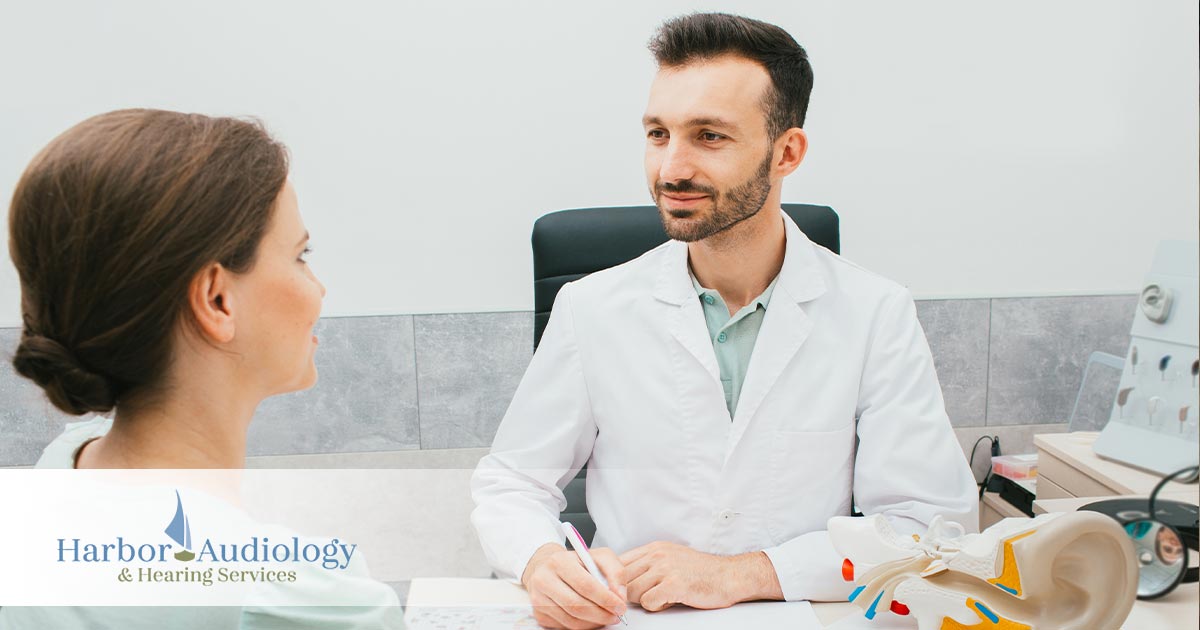
Can Hearing Loss Be Prevented?
Reviewed by Dr. Porter on April 1, 2021
Hearing loss is astonishingly common.
About 1 in every 250 children suffers some kind of auditory loss in both ears, according to a study published in the New England Journal of Medicine. Scientists tell us that every year as many as about 60,000 Americans suffer sudden sensorineural auditory loss, usually in just one ear. This condition can have many and diverse causes, but fortunately hearing often can be restored.
About 1 in 30 adults has hearing loss caused by exposure to noise. And researchers at Johns Hopkins University tell us that one in three of Americans over the age of 60 suffer presbycusis, hearing loss that is related to aging.
Tens of millions of people in the United States alone suffer from partial or total auditory loss. Some cases of hearing loss cannot be prevented. But certain kinds of auditory loss are preventable if those at risk receive appropriate professional intervention in time.
What Causes Hearing Loss?
Auditory loss sometimes results from easily treatable conditions. Consider the case of excessive earwax.
A buildup of earwax in the ear canal, usually caused by impacted earwax forced down the canal with a Q-tip or the ear’s reaction to excessive water exposure, can cause stuffiness in the ears and muffled hearing. Earwax removal is a simple procedure that is best left to your ENT (ear, nose, and throat specialist) or your professional audiologist.
Hearing loss can result from a combination of exposure to loud sounds and aging. Wear and tear on the tiny nerve cells in the hairs inside the cochlea can damage or destroy them. When these nerve cells aren’t functioning, there is no way to send electrical impulses associated with the sensation of sound to the brain. This kind of damage usually affects the ability to hear high-pitched sounds and the ability to pick out a single voice from multiple conversations first.
Hearing loss can result from tumors, from abnormal bone growth, and from infections. Any of these conditions in either the inner or outer ear can result in auditory loss.
Loud blasts of noise can cause tympanic membrane perforation, better known as a ruptured eardrum. This condition can also be caused by sudden changes in pressure, such as coming up too quickly from a deep dive, or by sticking objects into your ear canal, usually to remove built-up earwax.
A number of risk factors, some of which can be controlled and some of which cannot, predispose people to these causes of auditory loss. Risk factors for losing your hearing include:
- Genetics. Auditory problems sometimes run-in families. You can’t change heredity, but with the help of a professional audiologist you can recognize problems and deal with them as soon as possible.
- Occupational noises. Constant exposure to loud sounds on the job or at your business can affect your auditory health over time.
- Recreational noises. Some especially noisy hobbies, like skeet and trap shooting, take a toll on hearing.
- Certain illnesses. Ear infections can affect auditory health, as can meningitis.
- Certain medications. Viagra, some kinds of antibiotics like gentamicin, and some kinds of chemotherapy damage hearing
- Age. And as so many of us know from personal experience, auditory loss increases with aging.

Can Hearing Loss Be Prevented?
Many times, changes in the delicate structures that enable us to hear reflect bigger changes in your health as a whole. Conversely, maintaining the best overall health you can help preserve your hearing. Here are some rules for the major lifestyle concerns that affect your auditory health.
- Keep your blood pressure under control. Mid-life hypertension often leads to late-life auditory loss. Researchers tell us that there is a lag time of about 25 years before the onset of high blood pressure and the beginning of auditory loss.
- If you have diabetes, try to keep your blood sugar levels under control. Have you ever heard of diabetic neuropathy, the disease that causes burning, tingling, and numbness in diabetic feet and fingers? Something similar can happen to the nerves in your ears causing loss of hearing. The science says that just 5 years of uncontrolled blood sugars can cause permanent auditory loss — but don’t wait 5 years to start getting your diabetes under control.
- Don’t smoke. We know smokers get tired of being told they need to quit smoking. But the simple facts are that the more cigarette smoke to which you are exposed, even if it’s second-hand smoke, the greater your auditory loss.
- Exercise to stay functional. The data don’t say that there is a magic number of hours of exercise per week that helps you maintain your hearing in old age. Instead, the realities are more complicated than that. You hear with your ears, but you interpret sound with your brain. Exercise that helps you stay functional, able to walk around the block, able to open a jar, able to walk up a flight of stairs, those kinds of basic things, keeps your brain active enough that it can work with diminished auditory acuity. Never give up exercising.
- Get your B vitamins. There is good scientific evidence that folic acid deficiency increases the risk of hearing loss. Ironically, the people in the USA who are most likely to need supplemental folic acid (preferably in the form of methyl folate, since some people can’t process folic acid itself very well) are people who avoid packaged cereals, bakery products, and bread. In the US and Canada, most products made with flour are supplemented with folic acid. If you have an issue with heavy drinking, it may also help to take supplemental vitamin B12.
- Avoid places that are too loud. How loud is too loud? If you have to move in close to speak with someone, or if you have to speak up to be heard, you’re someplace that’s too loud. If you have trouble hearing after you have spent time in such a place, check in with Harbor Audiology to make sure no damage has been done.
The hearing specialists at Harbor Audiology can provide you care you need for the best health possible. Our staff can help you with your questions about insurance or VA benefits, and we have office hours most evenings and Saturdays. Harbor Audiology serves Sequim, Silverdale, Tacoma, Gig Harbor, Port Angeles, and Federal Way. Request your appointment online today!
Categorised in: Audiologist






